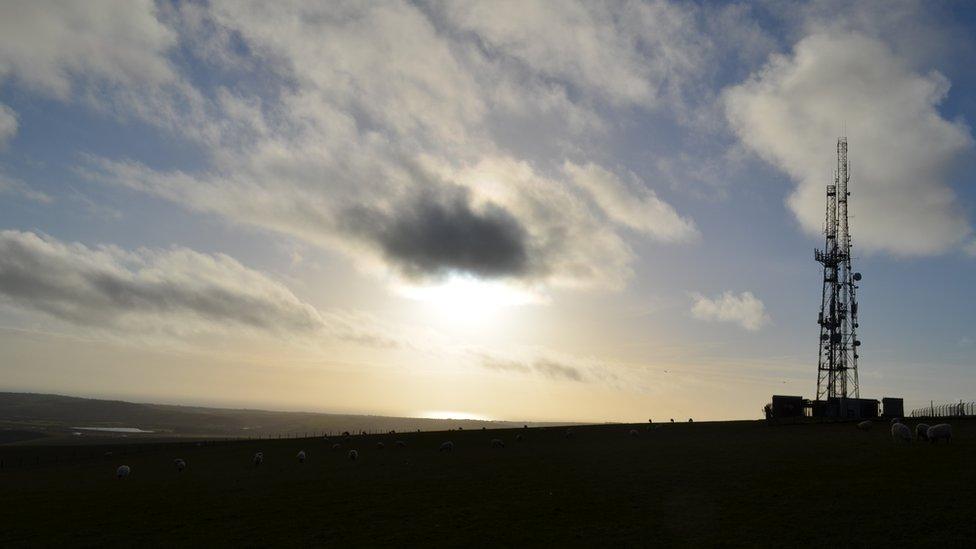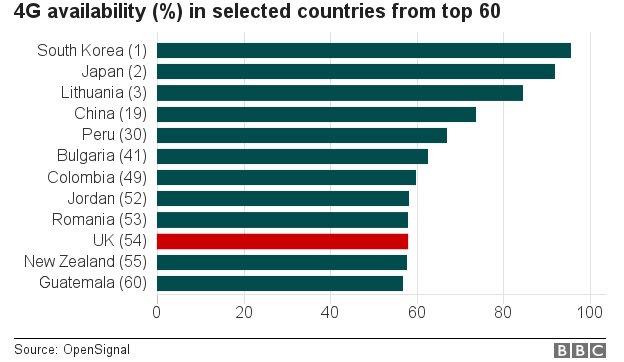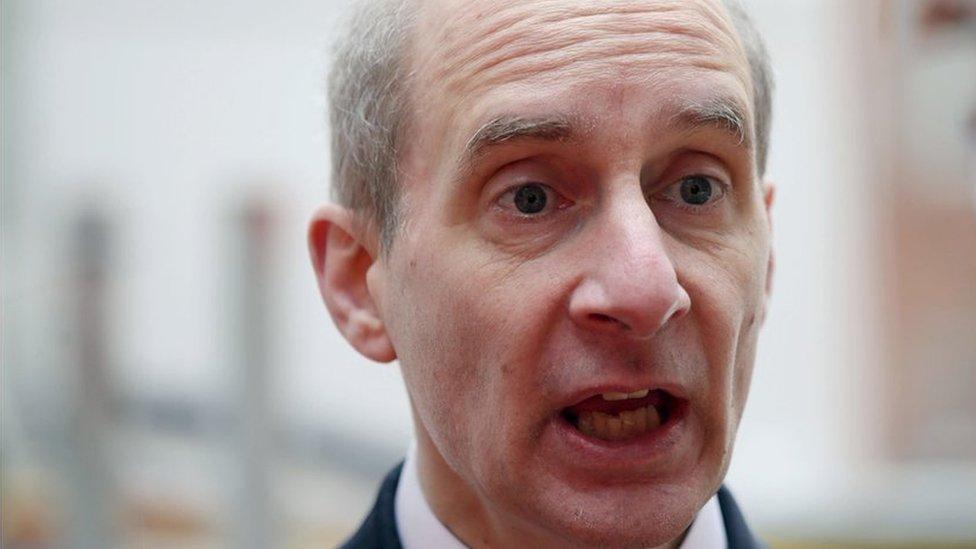UK government 'must take action' on 5G
- Published
- comments

More communications masts will be needed to facilitate 5G
The rollout of the UK's future 5G mobile network must be handled better than 4G was, according to a new report.
The current 4G network ranks only 54th in the world in terms of coverage, the government-appointed experts said.
Lord Adonis, who led the investigation, told the BBC that coverage on the UK's trains and motorways was "frankly appalling".
He urged ministers to ensure there would be far fewer dead spots on the next-generation network.
"The government has been putting more investment and obligation requirements on the mobile operators but we think that needs to be taken further," Lord Adonis, who heads the National Infrastructure Commission (NIC), told the BBC's Today programme.
Lord Adonis defends roll-out of 4G technology on Today but admits it's not moving fast enough
"We particularly think there is a big problem with our road and rail networks. Up to 25% of the time it is not possible to get a decent signal."
Highways England and Network Rail must take "direct responsibility" for improving coverage on roads and railways, he added.
'Must improve'
Ofcom welcomed the report but indicated the study that gave rise to the UK's low ranking might not be reliable.
The communications regulator's targets are based on the percentage of properties that have access to a mobile phone signal rather than coverage to all parts of the country.
But the figure quoted by the NIC was based on data gathered by an app used by volunteers measuring the amount of time they had access to a 4G network over the course of each day. Ofcom is understood to be concerned that the app does not measure coverage across the country.
"We agree that mobile coverage must improve, so we're pleased the NIC shares our ambition for universal coverage," said a spokesman for the communications regulator.
"Our rules mean that virtually all UK premises must receive a 4G signal by the end of next year, and we're also making more airwaves available to boost mobile broadband.
"Last month, we challenged mobile operators to explore how to reach all remote areas and transport lines.
"We will shortly publish robust data on 4G in the UK, to help inform decisions on improving coverage."
Lord Adonis acknowledged that the crowdsourced data gathered by OpenSignal was not perfect, but said it was "based on 15 million users worldwide and 60 million measurements in the UK - no one's got better data than that".
5G masterplan
A 5G standard does not yet exist, but the technology is expected to surpass 4G to provide faster data uploads and downloads when it is deployed, some time after 2020.
The NIC said mobile connectivity had become a "necessity" in society and 5G would play a crucial role in the economy.

"The UK's networks are not complete. There are too many digital deserts across the country and the availability of our 4G network is worse than many countries including Albania, Panama and Peru," the commission said.
Its report called on the government to become a "digital champion" by, for example, creating a dedicated cabinet minister.
Roadside networks needed to be made "fit for the future", while the railway network must "rapidly improve connectivity", it said.

The commission wants to see 5G available on transport
The necessary infrastructure for both should be in place by 2025, the report said.
The NIC predicted the need for tens of thousands of small wireless cells in towns and cities for devices to connect to the 5G network.
The idea is that these would have less range than the current mobile phone masts, but there would be more of them and they would be better positioned to ensure blanket coverage.
The report called on local authorities to work with network providers to make this possible.
The commission said the government and Ofcom must "ensure basic outdoor mobile services are available wherever we live, work and travel".
It said the two bodies should develop a "meaningful set of metrics that represent the coverage people actually receive and use these to determine a mobile universal service obligation setting out the minimum service level people should expect to receive".
Regulation in this area must "keep pace" with the rapid evolution of the mobile communications markets, in order to allow new firms to "provide services that the existing market has not delivered", the report added.
A spokeswoman for the Treasury noted that the chancellor had already committed £1bn to support 5G trials as well and fibre broadband.
"We want the UK to become a world leader in 5G, which is why we asked NIC to carry out this study," she said.
"We will consider their recommendations carefully and respond at Budget 2017."
- Published14 December 2016

- Published21 November 2016

- Published5 October 2016
